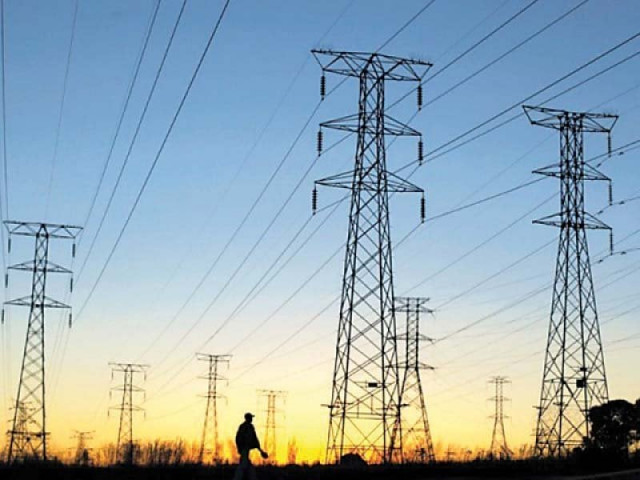Row over hiring of arbitrator remains
Govt stakeholders call for appointing arbitrator to resolve K-Electric receivables, payables issue

The federal government has stepped up efforts for the transfer of K-Electric shares to Shanghai Electric Power of China but differences have not been resolved over the appointment of an arbitrator that will deal with the issue of receivables and payables.
An application seeking the national security certificate for the transfer of 66.4% K-Electric shares to Shanghai Electric Power was submitted to the Privatisation Commission in November 2016.
Subsequently, stakeholder meetings were held at different forums. The Cabinet Committee on Privatisation, when it met in March 2018, agreed that the national security certificate would be issued but K-Electric would bear all its existing financial liabilities.
Shanghai Electric did not give its consent to that proposal and the matter has not been settled since then.
Sources told The Express Tribune that an inter-ministerial committee had to decide about the lead ministry - finance or energy - for signing an arbitration agreement on behalf of the government of Pakistan. K-Electric insists that a foreign arbitrator should be appointed but government stakeholders are not agreeing to that.
When the Pakistan Tehreek-e-Insaf (PTI) came to power, the Economic Coordination Committee (ECC), in its meeting on October 2, 2018, constituted a committee, headed by the adviser to prime minister on commerce.
The committee met on October 25, 2018 and directed that a deed of understanding (DOU) should be inked with Shanghai Electric and a deed of extinguishment (DOE) with KES Power.
Before any further deliberations, another inter-ministerial committee was formed in December 2018, headed by the privatisation minister and comprising other relevant ministers and secretaries.
In its meetings, the committee expressed the desire that an agreement should be reached by relevant stakeholders on the draft DOU and DOE. The Power Division proposed that the issue of payables and receivables to and from the government and public sector enterprises may be resolved through arbitration.
In a meeting of relevant ministries in October 2019, it was agreed that arbitration was an appropriate mode for resolving the issue of K-Electric’s payables and receivables.
Later, another key meeting among stakeholders, co-chaired by the privatisation and energy ministers, was held on February 24, 2020 where four main actions were identified to press ahead with the matter.
Regarding receivables and payables, it was recommended that the matter may be resolved through arbitration and all parties involved should appoint their representatives for negotiations on the terms and conditions of a proposed arbitration agreement.
A draft arbitration agreement has largely been agreed in meetings of the stakeholders in June 2020, except for some difference of opinion.
Prime Minister Imran Khan also directed the minister for planning, development and special initiatives to resolve pending issues of K-Electric.
The matter was discussed in the Cabinet Committee on Privatisation on August 21, 2020 where senior officials of the Ministry of Finance briefly talked about payables to K-Electric. However, they were not in consonance with the principle of netting off as was agreed during the meetings held on the arbitration agreement.
“K-Electric is committed to the swift resolution of long-standing issues related to payables and receivables from various federal and provincial government entities,” K-Electric said in response to request for comments.
To date, according to the power utility, its net receivables, on a principal basis, have ballooned to over Rs80 billion on account of outstanding payments from various public sector entities. It emphasised that financial settlements between K-Electric and public sector entities must be treated in a fair and uniform manner and the yardstick applied to K-Electric’s payables, should also be applied to its receivables.
Published in The Express Tribune, September 15th, 2020.
Like Business on Facebook, follow @TribuneBiz on Twitter to stay informed and join in the conversation.



















COMMENTS
Comments are moderated and generally will be posted if they are on-topic and not abusive.
For more information, please see our Comments FAQ